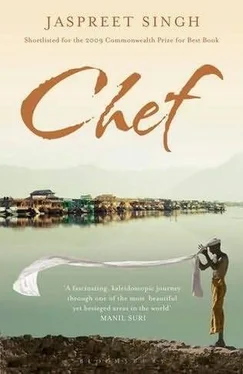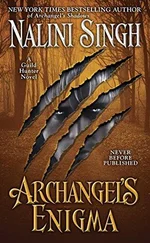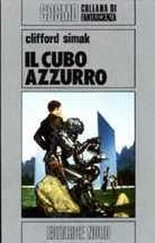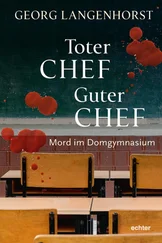I will miss the bus to the mountains if the train fails to cover time.
There is one thing the doctor said which keeps coming to me. Cells, Kirpal. Our bodies, you see, are made of cells at the most fundamental level, he said. Cells are constantly taking birth and dying inside us. Every cell knows when to kill itself. But cancer cells refuse to do so, they keep giving birth to more and more cells, and refuse to die themselves. People with cancer die, Kirpal, because at the fundamental level their bodies start craving immortality.
On this train I feel like a man who has already expired. Unable to endure so many civilians. I don’t desire to be immortal. Old passengers leave, new ones occupy the seats. They are all the same, no difference, and I am ashamed of them, all of them. The more I witness their lives the more ashamed I feel. Ashamed of my country. Is it for them my father died? Did we lose so many of our men in the army for such useless people?
Eight people on my left are speaking at the same time, they are inebriated and discussing plans to immigrate to America; another group across the aisle prefers Australia. I have decided not to speak to them at all. If I tell them about my time in the army they will say: ‘We would like to hear stories about the heroism of our soldiers.’ These people think war is TV.
Not far from me a man and his wife are sitting. It seems they have gone without sleep for nights. He is bald and she is on the plump side. They are a slightly older couple than the honeymooning pair I encountered last night. Not a word has been exchanged between us. But they are horrible. I had to endure them when the train stopped unexpectedly an hour ago.
When we came to a halt, the man lifted the window shutter and tapped on the wife’s shoulder.
‘I am stepping down,’ he said.
‘It is a small station,’ she said.
‘Forty minutes halt.’
‘Who told you?’
He did not respond.
‘Don’t go far away.’
He wiped his shirt with his hand, and walked past other passengers, and stood by the open door. It was early in the morning, but already very hot. On the left end of the station there was a pile of dismantled army vehicles and a badly damaged MIG-21 fighter plane, with only one wing.
The platform was animated with civilians and stray dogs and white foreigners in Indian dress. Cows were chewing on the garbage inside the bins and outside the bins. The man succeeded in making eye contact with his wife from the platform. She smiled and beckoned him towards her window.
‘What station is this?’ she asked loudly. He moved very close to the shutter of her window and leaned against the horizontal bars.
‘There,’ he said, pointing his finger. ‘I can’t read the sign properly.’
He stood there sweating, and a long time passed before another word was exchanged. He unbuttoned his shirt and touched his bald head.
‘It is hot,’ she said. ‘Where is your hat?’
‘I am fine. Just fine.’
The girl selling tea and pakoras stopped before the man. She looked like a gypsy. The man ordered.
The girl produced two teas in earthen cones.
‘Should we get a plate of pakoras as well?’ the man asked.
His wife didn’t respond.
The silences were not awkward. I think this is how all married people eventually become.
The gypsy girl looked at the wife while the man transferred a cone of chai through the window. The wife returned the gaze. There were blisters on the girl’s feet, red dots in the middle, and red circles around them. She wore bangles all the way from wrists to shoulders, they chimed when she lifted her arms.
‘Pakoras, Memsahib?’ she asked.
‘No,’ the wife said. ‘No pakoras.’
‘Egg pakoras, Memsahib.’
‘No.’
‘Take it, Memsahib!’
‘Go away,’ the wife almost screamed.
The civilian man took the plate and started eating greedily.
‘Did you find out the name of the station?’ the wife asked.
‘Don’t worry,’ he said, ‘this is not Pokhran.’
‘Why did we have to take this train?’
‘Don’t start again,’ he said. ‘You have such a negative attitude.’
‘You started it.’
‘I don’t understand you.’
She picked up the book she was reading and opened it randomly.
‘Listen,’ the man said to his wife, ‘the lady-doctor says she can do it quickly. Nothing goes inside you.’
‘But I don’t want to get it done.’
‘Don’t worry. I will go with you. The lady-doctor says it is safer than X-ray. Ultrasound is like taking a picture only.’
‘But I really don’t want to.’
‘Think about it.’
His fingers were grubby with pakoras.
‘For you I will do anything. But not this thing,’ she said.
‘Please don’t do it if you feel like that. No one is forcing you.’
‘What if the picture isn’t right?’
‘It will be all right.’
‘Are you sure?’
‘Have I ever lied to you?’
‘But how can one be sure?’
‘Because if it isn’t all right then we must find out a way to fix it. Don’t you want it to be all right?’
‘But what if it is a girl?’
‘Of course it will be a boy.’
‘You don’t like girls?’
‘I like you,’ the man said. ‘I go to work every morning because I like you. Have I done anything to show I don’t like you?’
‘I know you like me. But would you stop liking me if I don’t get this thing done?’
‘You don’t go to the lady-doctor, nothing will change between us. I assure you. But, it will make me unhappy.’
‘What if it is a girl?’
‘What can I do to make you think positive?’
‘How can you be sure?’
He took a coin from his pocket. He flipped the coin thrice, using his grubby fingers.
‘See,’ he said. ‘Three times sure. It will be a boy.’
‘Stop it. I want to read my book. Just stop it.’
‘Did I ever stop you?’ he said and moved away from her on the platform, and beckoned the gypsy girl and ordered more tea.
The girl tried to hand him two orders, but he took only one.
‘Memsahib is not having,’ he said, and spat on the platform.
He slurped loudly. She put a finger in her ear. He ate two more pakoras before the guard pressed the signal.
Civilians, I say to myself. Civilians.
And India started passing by all over again. The cows, the fertile fields, the dust. India picked up speed, started pacing in straight lines and curves to the highest mountains up north. Boulders of memories started echoing. Chug. Chug. Chug. I had thought travel would liberate me from the burden of memories. When one is neither here nor there, when there is so much space and so much sky outside the window, I had imagined time would finally liberate me. But exactly the reverse is happening.
There are two kinds of chefs in this world. Those who disturb the universe with their cooking, and those who do not dare to do so. I am of the last kind. I try to make myself invisible. Don’t get me wrong. Great satisfaction comes to me watching people praise my dishes. And yet… Food that draws attention to itself is not my idea of perfection.
‘Bad’ cooking, of course, draws attention, but so do dishes that are technically considered ‘good’. The ‘best’ preparation is the one that transports people elsewhere, far away from the table.
Chef Kishen dazzled the table. I, on the other hand, transport people to dazzling places. But I have never been able to cook like him. His touch was precise. As if music. He appraised fruits, vegetables, meats, with astonishment, and grasped them with humility, with reverence, very carefully as if they were the most fragile objects in the world. Before cooking he would ask: Fish, what would you like to become? Basil, where did you lose your heart? Lemon: It is not who you touch, but how you touch. Learn from big elaichi. There, there. Karayla, meri jaan, why are you so prudish?… Cinnamon was ‘hot’, cumin ‘cold’, nutmeg caused good erections. Exactly: 32 kinds of tarkas. ‘Garlic is a woman, Kip. Avocado, a man. Coconut, a hijra… Chilies are South American. Coffee, Arabian. “Curry powder” is a British invention. There is no such thing as Indian food, Kip. But there are Indian methods (Punjabi-Kashmiri-Tamil-Goan-Bengali-Hyderabadi). Allow a dialogue between our methods and the ingredients from the rest of the world. Japan, Italy, Afghanistan. Make something new. Channa goes well with artichokes. Rajmah with brie and parsley. Don’t get stuck inside nationalities.’ I would watch the movement of his hands for hours on end. Once the materials stripped themselves bare, Chef mixed them with all that he remembered, and all that he had forgotten. Sometimes he would contradict himself, and that was the toughest thing to master in the kitchen.
Читать дальше
Конец ознакомительного отрывка
Купить книгу












